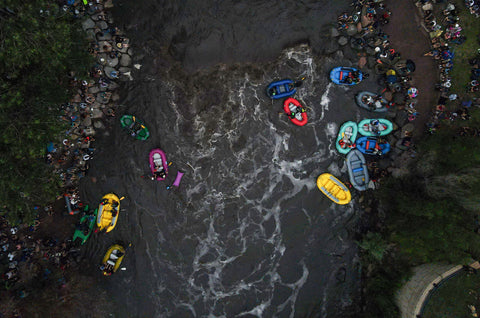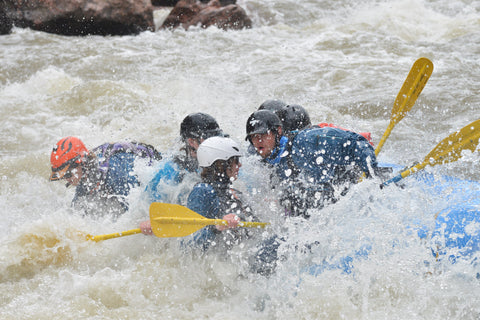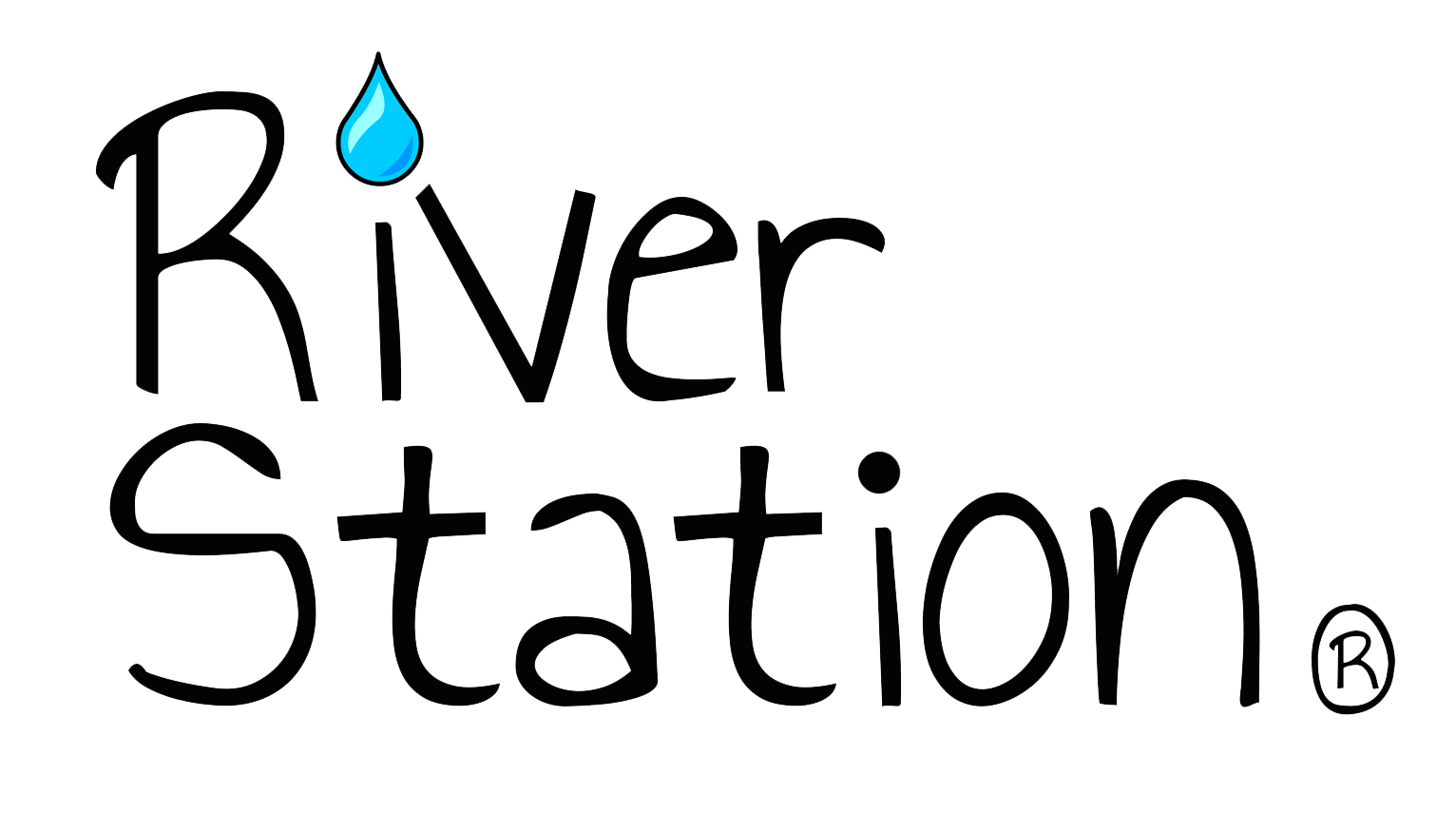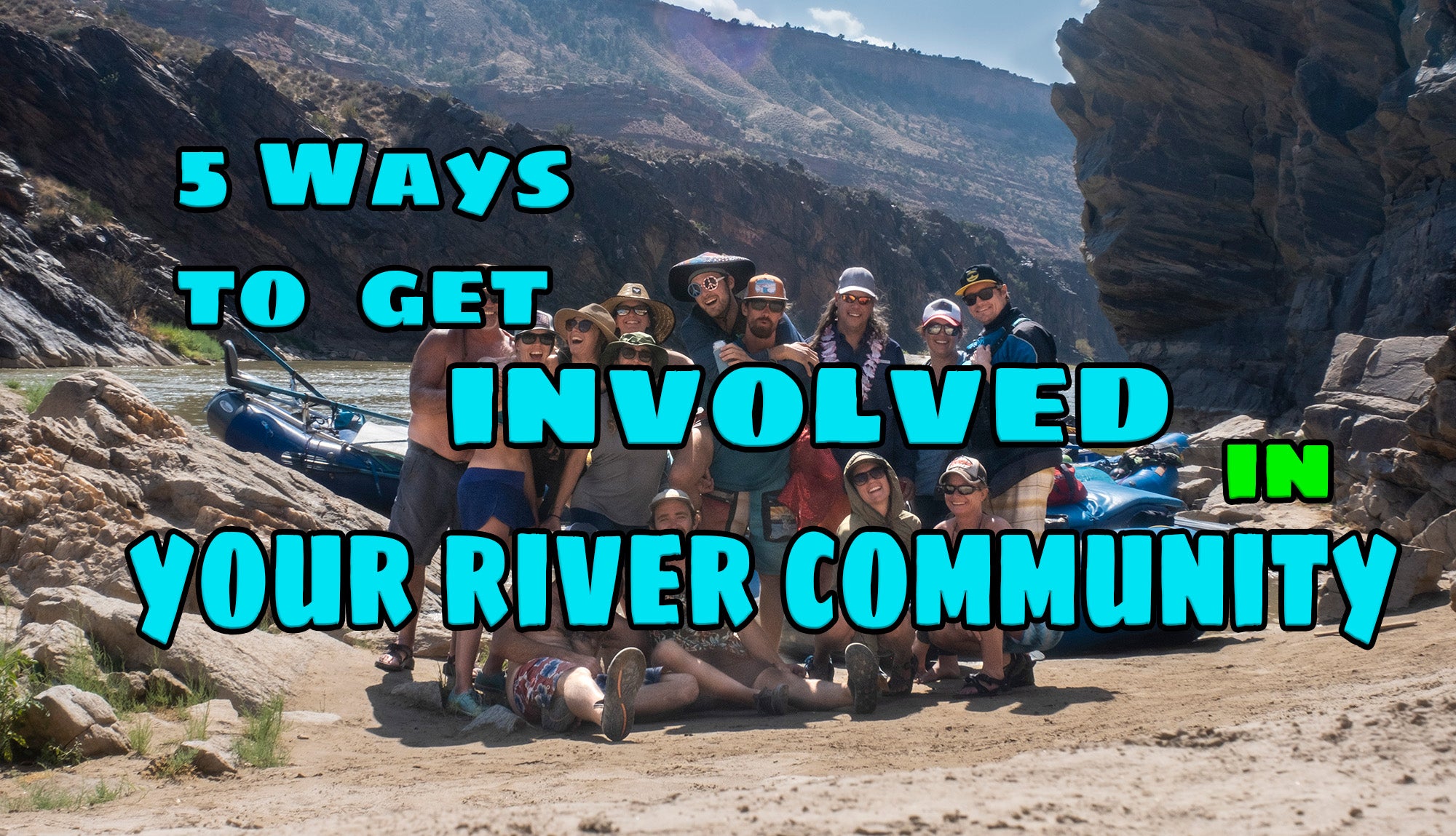Feeling like you need to up your boating game? Sometimes it's not only about increasing your skills or taking on the biggest rapids. Often, simply connecting with like-minded boaters and becoming part of the local community can be the step up you may be missing.
The following are actions you can take to learn more about the river, find more boating buddies, and get involved in the community surrounding it. Plus, they are fun!

Join a river clean up event.
As boaters, the river is our source of fun and adventure. It's where we float, and enjoy beverages and good company, but it's also a source of life for birds, fish, animals and the surrounding human residents. It's important to take part in protecting the water that we use so frequently.
One small way to pitch in, is to join a river clean up event. Clearing the trash out of our waterways is a great starting point for preservation and a great way to feel engaged with other river enthusiasts.
Here in Canon City, you can join Royal Gorge Rio for the spring river cleanup by floating the Royal Gorge or Bighorn sections and collecting trash. Not to worry if you don't have a boat to use, a large portion of volunteers scour the river-walk on foot.
Most regions will have their own river clean up. Protect Our Rivers has a list in the Denver area and American Rivers has nationwide listings. Just search for the event nearest to you or organize your own.
Remember to do your part whenever boating and “leave no trace”. That means stashing cans and accessories in dry bags or mesh bags in case of eventful rapids, and following the “pack it in, pack it out” rule for overnight floats.
Take a river clinic or swift-water rescue course.
Learning new techniques or refreshing your rescue knowledge is never a bad idea, but on top of the knowledge you'll learn, joining a clinic will introduce you to other boaters who also want to improve their skill and, most importantly, want to be safe on the water.
Find a whitewater instruction school or raft guiding outfitter near you that offers different clinics and choose one that fits your experience level.
If you are lucky enough to have a whitewater instruction school on your local river, I would highly recommend joining one of their classes. Generally, whitewater schools offer many different clinics, from rowing a raft, to kayaking and swift-water rescue. Sometimes, they will offer more specialized courses like all female clinics, whitewater canoeing and also ACA instructor certifications.
Some courses even offer specific advice on how to rig your boat for Grand Canyon trips. It's a great way to find similar minded boaters or try a new craft in a safe environment.
There will almost always be a local Swift-water rescue option where you can learn, hands on, how to throw a throw bag, self-rescue and entrapment rescue, as well as how to flip and unpin boats and how to tie river knots. These courses are offered throughout the year in most whitewater communities. You can always contact a local raft outfitter for info about swift-water courses in your area.
Join social media groups or forums.
The good old internet can occasionally be helpful for some things. Finding groups of boaters to run with, or gender specific advice, is a great way to use this tool.
It's obviously a useful way to buy and sell gear, but you can also get real person gear reviews and recommendations. Get female specific info for pfd's, or what drysuit keeps you warmest, or find the best waist throw bag for river rescue. Having the boating community at your fingertips is a perk of the modern age of whitewater.
Make sure to read through the rules and make sure it is a positive and welcoming group, one built on encouragement and not negativity.
Get paid to go boating, become a guide.
A fairly logical way to connect with the river culture near you, but if you live to be on the water, then you may as well get paid for it.
Of course it has a different feel to it than going boating with friends, but being able to share something you enjoy with people who may be on their first ever river trip, or who may not experience being out in nature that often, can be a wonderful thing.
You'll also be able to gain experience quickly since you'll be on the river...a lot. Connections can reach from local rivers all the way to international river communities, so it's a perfect way to immerse yourself and learn from other guides.

Stay up to date on river conservation.
If you want to be involved in your river community, it's important to know what is happening to threaten or protect it. Knowing what is happening upstream and downstream on your local river can broaden your view of river ethics.
American Rivers is one of many great resources to learn about protection, recreation impact, and water rights all over the USA. Find out which rivers are wild and scenic, and which ones are endangered. Subscribe to emails to get current news on conservation acts and legislation in process. Knowledge is power, as they say.
Take it one step further and volunteer for local conservation events. As mentioned above, one great way is to join a river clean up, but you can also attend local meetings or use your voting power on conservation issues.
Most non-profits also accept donations if you want to partner financially with them. Make sure to do your research and find an organization that you align with and that shows what actions they are taking to protect our rivers.
Conclusion
Get involved. Find a local river clean up event to join or gain knowledge about river conservation efforts near you. Become a guide for a season or more and make connections.
Find nearby boaters on social media groups to catch shuttle with. Take part in a river clinic or swift-water class and increase your river safety knowledge.
Any way you choose to be a part of the river community, you will find like-minded river people to boat with and feel good about making an impact.
By: Jodi McConnell


Share:
To Knot or Not
Should You Have a Waist Throw Bag?